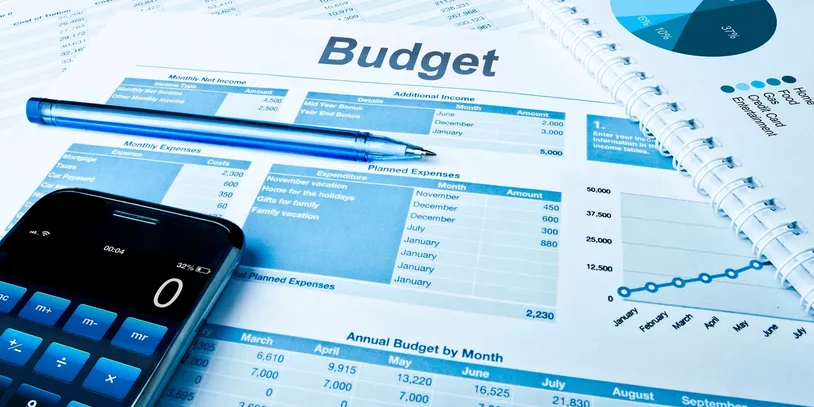To effectively manage your personal finances, it’s essential to have a clear understanding of your income and expenses. Start by evaluating your sources of income, including your salary, freelance work, investments, and other sources. Then, track all of your monthly expenses, from rent or mortgage payments to utility bills and leisure expenses like going out and dining out. Understanding your income and expenses is the first step toward gaining more control over your finances. It allows you to identify areas where you can cut costs and put more money toward savings or paying off debt.
Set Clear Financial Goals
Effective personal finance management starts with setting clear financial goals. These goals give you a sense of direction and purpose when managing your money. Divide your goals into short-term and long-term goals. For example, short-term goals might include saving for a vacation, building an emergency fund, or paying off credit card debt. Long-term goals might include saving for retirement, buying a home, or paying off student loans. Be clear about how much you want to save or repay and set a realistic timeline to achieve those goals. Regularly evaluating and adjusting your goals will help you stay on track to financial success.
Create a budget and stick to it
A budget is an essential tool for managing your personal finances professionally. Creating a budget can help you stay within your means and prioritize your financial goals. Start by tracking your income and dividing your expenses into essential and discretionary categories. Essential expenses include rent, utilities, groceries, and transportation. Discretionary expenses include things like entertainment, dining out, and shopping. Make sure you’re on track to achieve your goals by saving a portion of your income and paying off debt. Stick to a budget, avoid impulse buys, and review your spending regularly to stay on track.
Build an emergency fund
An emergency fund is one of the most important financial tools you can have. It can serve as a safety net for unexpected expenses, such as medical bills, car repairs, or job loss. If you don’t have an emergency fund, you may end up using credit cards or loans to pay for these expenses, which can lead to even more debt. Make sure you have at least three to six months’ worth of living expenses in an easily accessible savings account. It’s okay to start small, but make building an emergency fund a priority. An emergency fund can give you peace of mind knowing that you’re prepared for any financial challenges that may arise.
Reduce and Manage Debt
Debt can be a major obstacle to financial success. Therefore, controlling and reducing debt should be a top priority. Focus on paying off high-interest debts first, such as credit card debt or payday loans. Consider using the debt avalanche method, where you pay off the highest-interest debts first, or the debt snowball method, where you tackle smaller debts first to gain a sense of accomplishment. Once you’ve paid off your high-interest debts, you can put those payments toward savings or investments. If you have student loans, car loans, or mortgages, make sure you continue to pay them off. This will reduce your principal and prevent you from accumulating more debt.
Automate Savings and Bill Payments
Automating your savings and bill payments is an effective way to ensure that you continue to save and meet your financial obligations. Set up automatic transfers to your savings account or retirement fund so that you can be sure that you are contributing regularly to your financial goals without having to think about it. Also, automate bill payments to avoid late payments and ensure that your credit score remains good. Automating these aspects of your finances reduces the risk of missing a payment or falling behind on your savings plan.
Build a Good Credit Rating
A good credit score is essential for obtaining loans, credit cards, and getting favorable interest rates. To build and maintain good credit, pay your bills on time, keep your credit card balances low, and avoid opening too many new credit accounts. Check your credit report regularly for any errors or discrepancies and dispute them immediately. If you have debt, try these
and capital gains. If you’re new to investing, consider starting with a tax-advantaged retirement account, such as a 401(k) or IRA. Diversify your investments to minimize risk and make sure you research each investment option thoroughly before committing to anything. As your wealth grows, you’ll be better positioned to achieve financial freedom and long-term financial security.
Track Your Net Worth
Tracking your net worth is an important part of managing your personal finances. Your net worth is the difference between your assets and your liabilities. Calculating and evaluating your net worth regularly can help you understand how your financial situation has changed and whether you’re making progress toward your goals. If your net worth is increasing, you’re on the right track. If it’s decreasing, it may be time to reevaluate your budget, reduce your spending, or prioritize paying off debt. Tracking your net worth can help you stay accountable for your financial goals and adjust your strategy as needed.
Learn About Personal Finance Management
Effective personal finance management requires ongoing education. The more you know about managing money, investing, and building wealth, the better decisions you can make. Read books, listen to podcasts, or take online courses to improve your financial knowledge. Understanding personal finance concepts like compound interest, investment strategies, and tax planning can help you make smarter choices with your money. Stay informed about financial changes that could impact your financial situation, such as new laws or tax regulations.
Finally
Managing your personal finances professionally requires discipline, planning, and consistent effort. By understanding your income and expenses, setting clear financial goals, creating and sticking to a budget, and building an emergency fund, you can lay the foundation for financial success. Reducing and managing debt, automating savings and bill payments, and building a good credit rating can further improve your financial situation. Investing for the future and tracking your wealth will put you on the right track to long-term financial security. Finally, continue to learn more about personal finance so you can make informed decisions and adjust your strategy as your financial situation changes. These practical tips will help you take control of your personal finances and achieve your financial goals.


